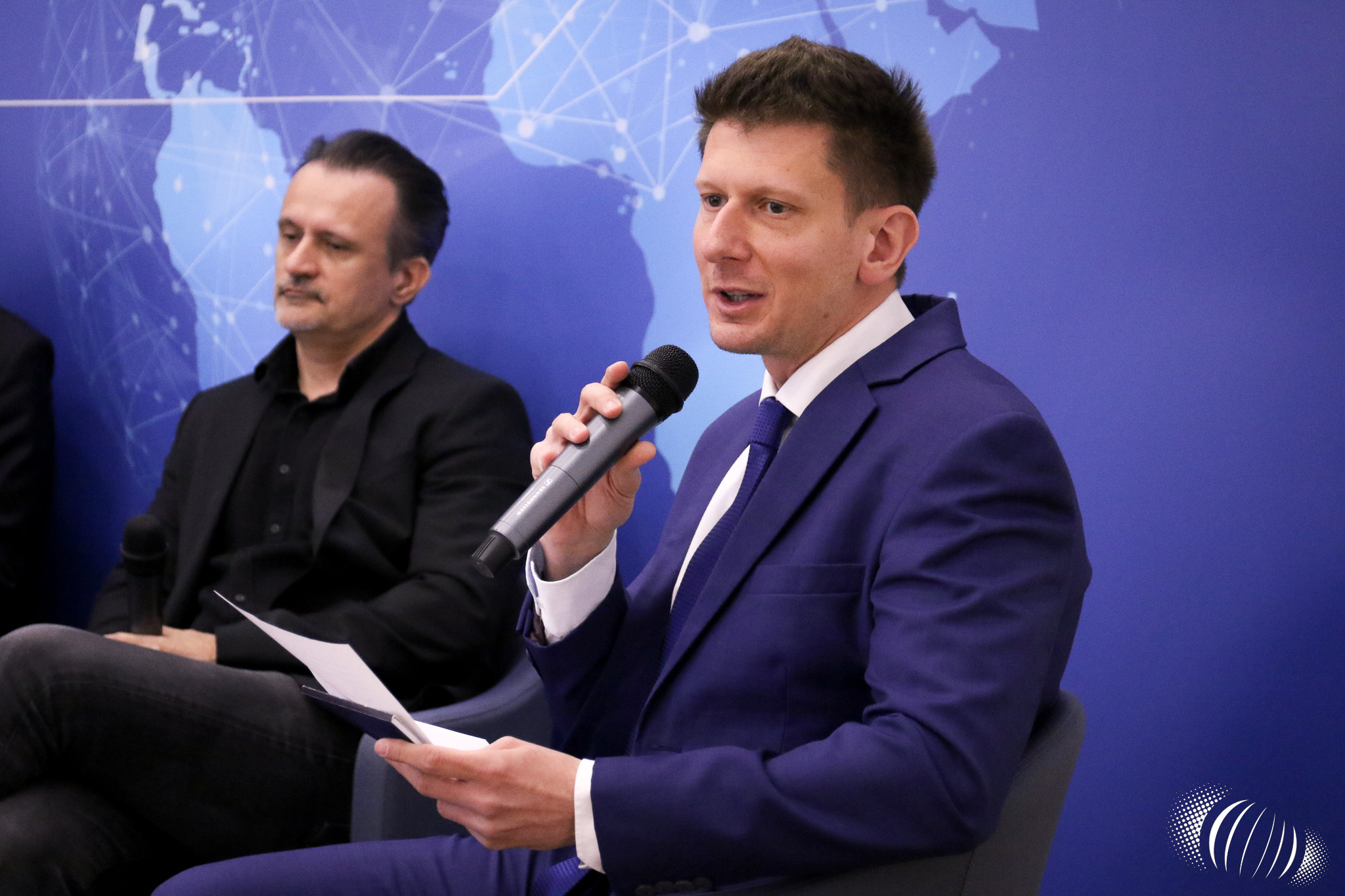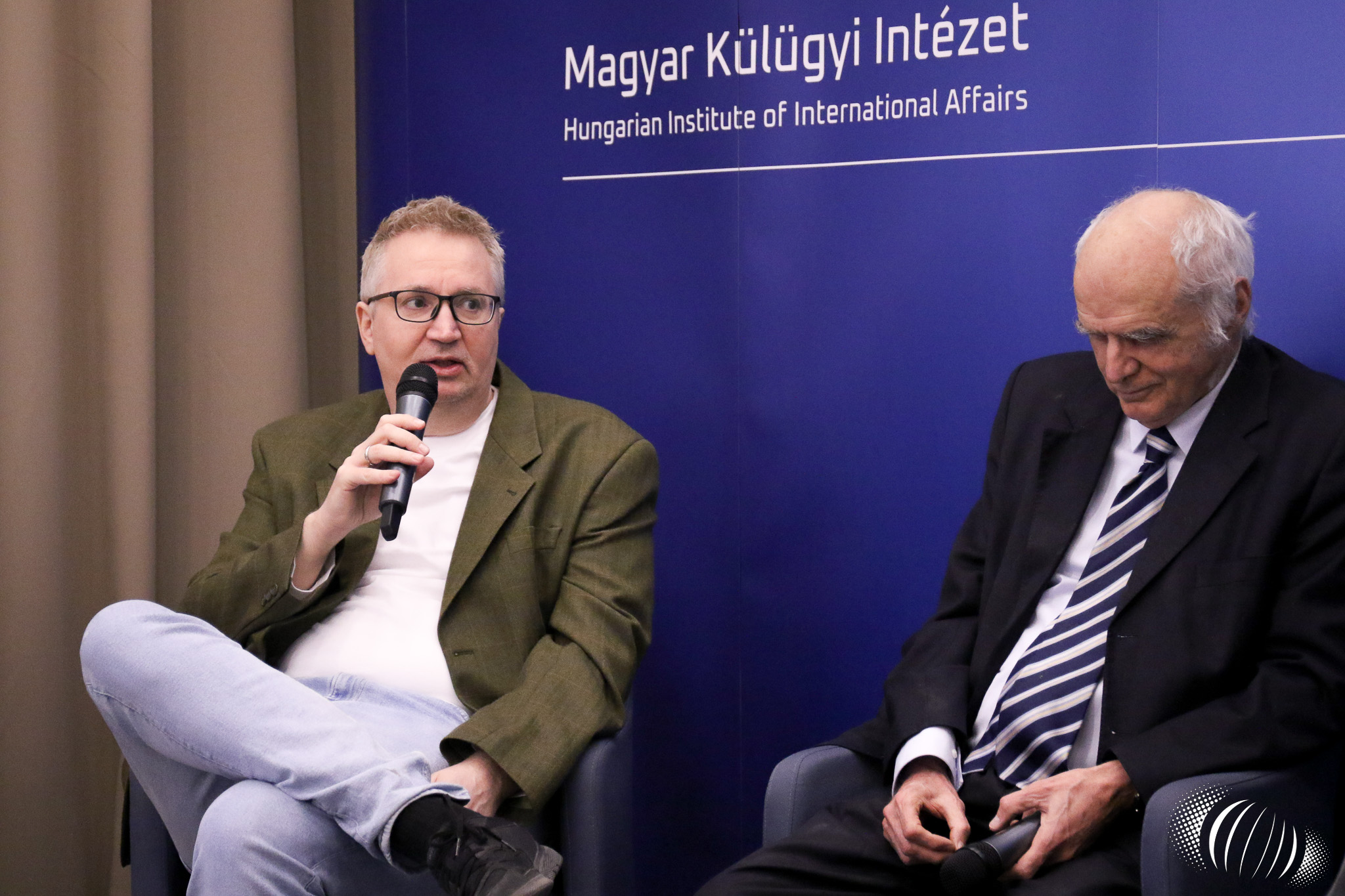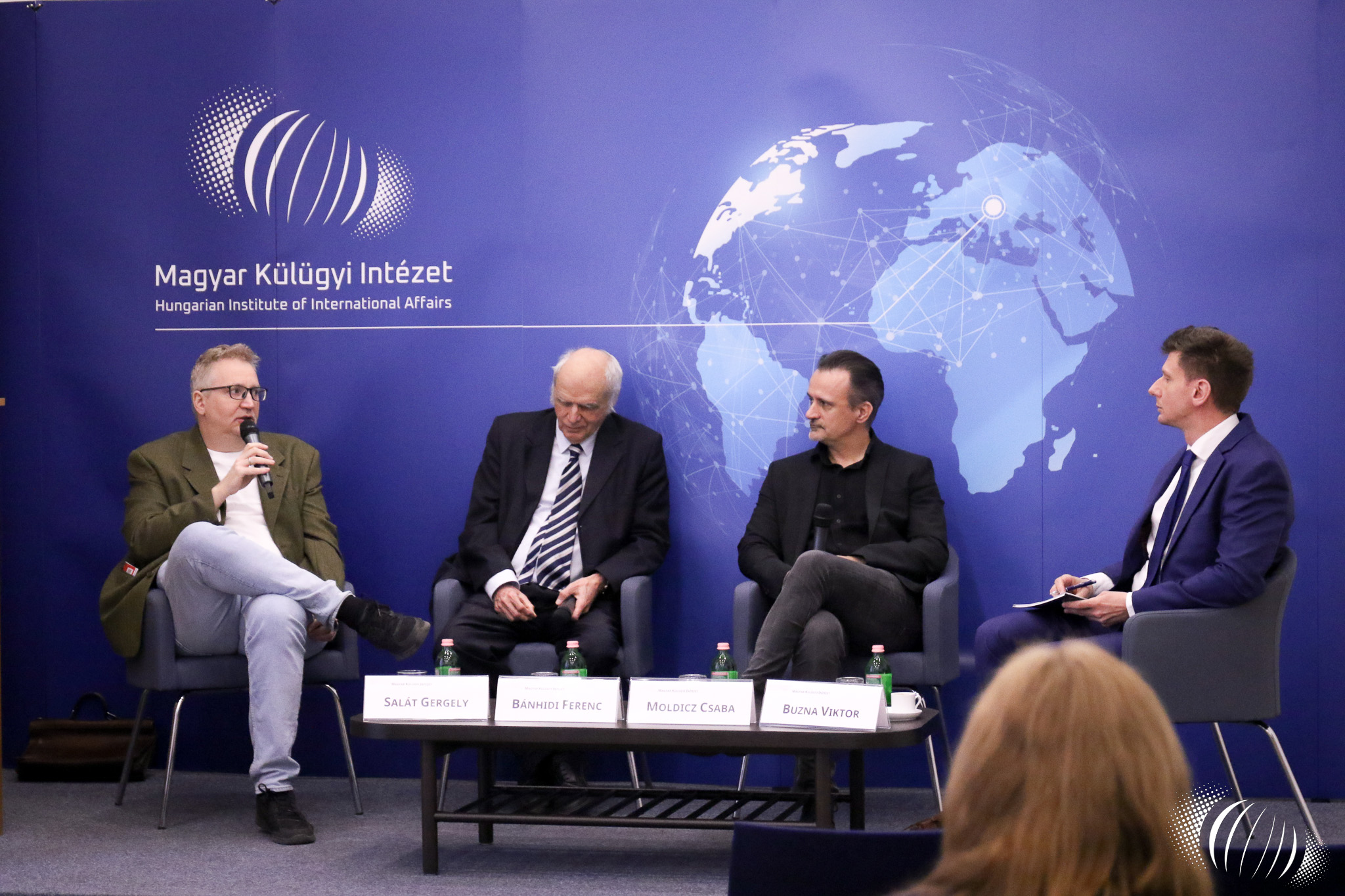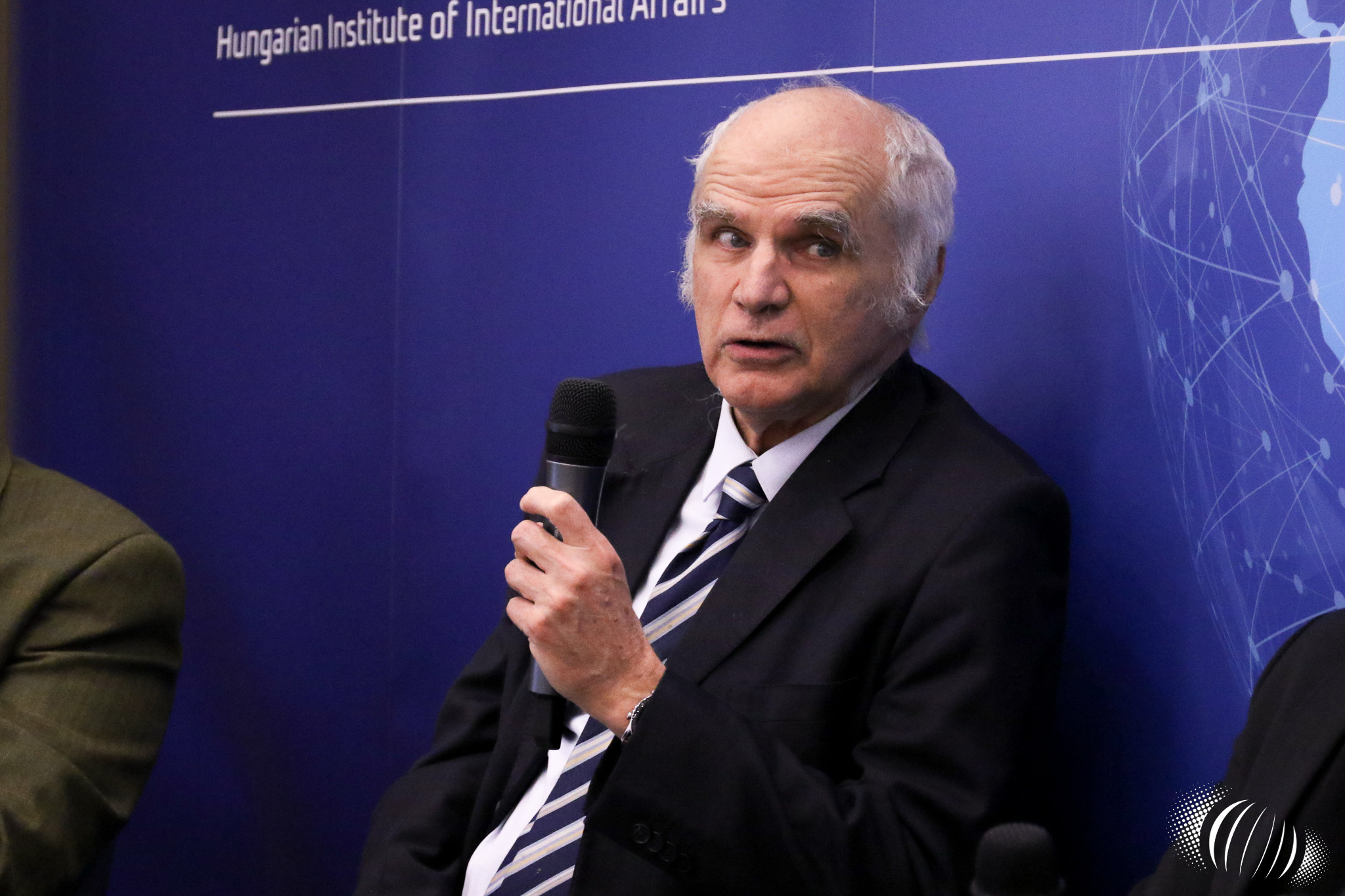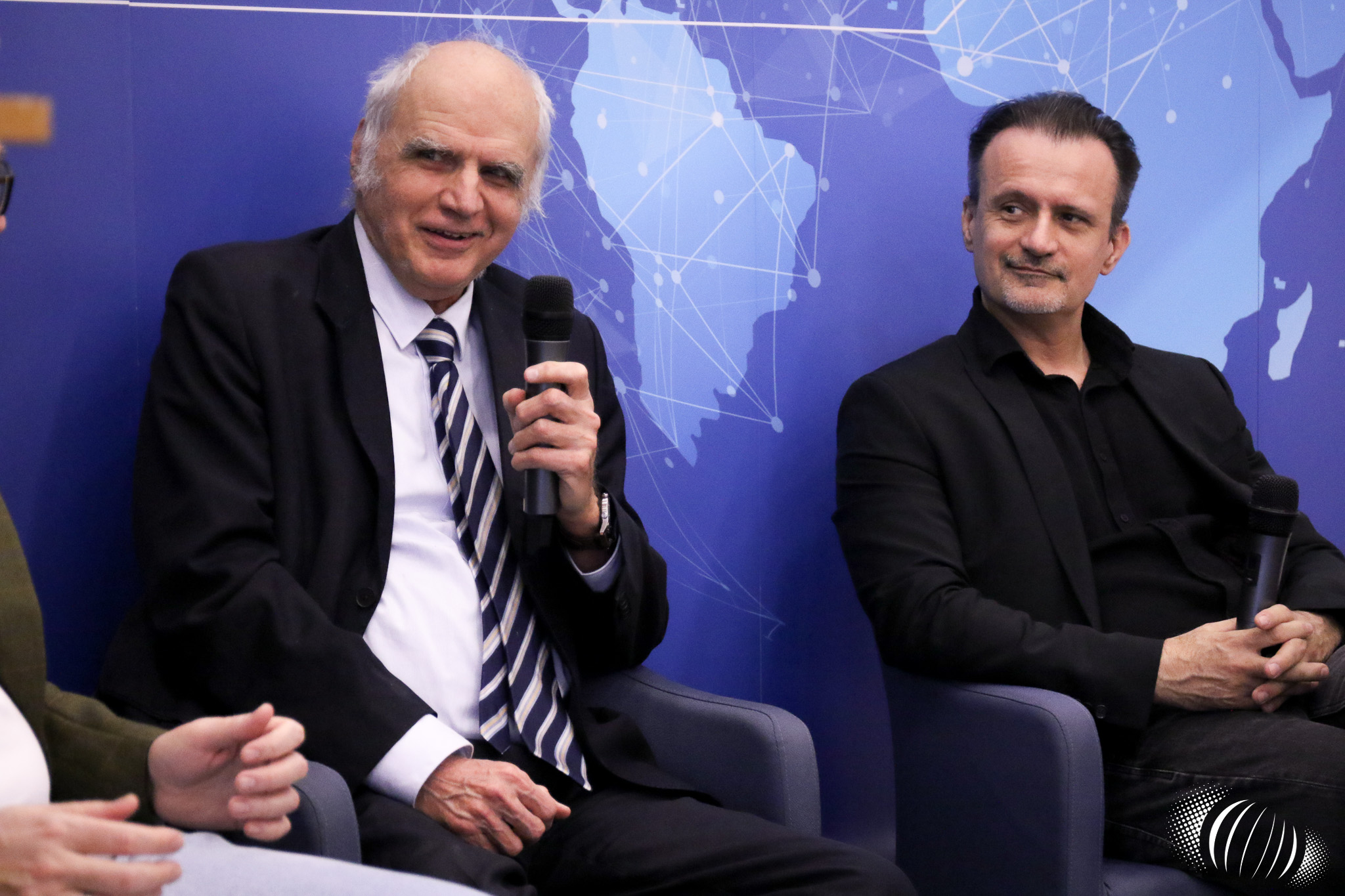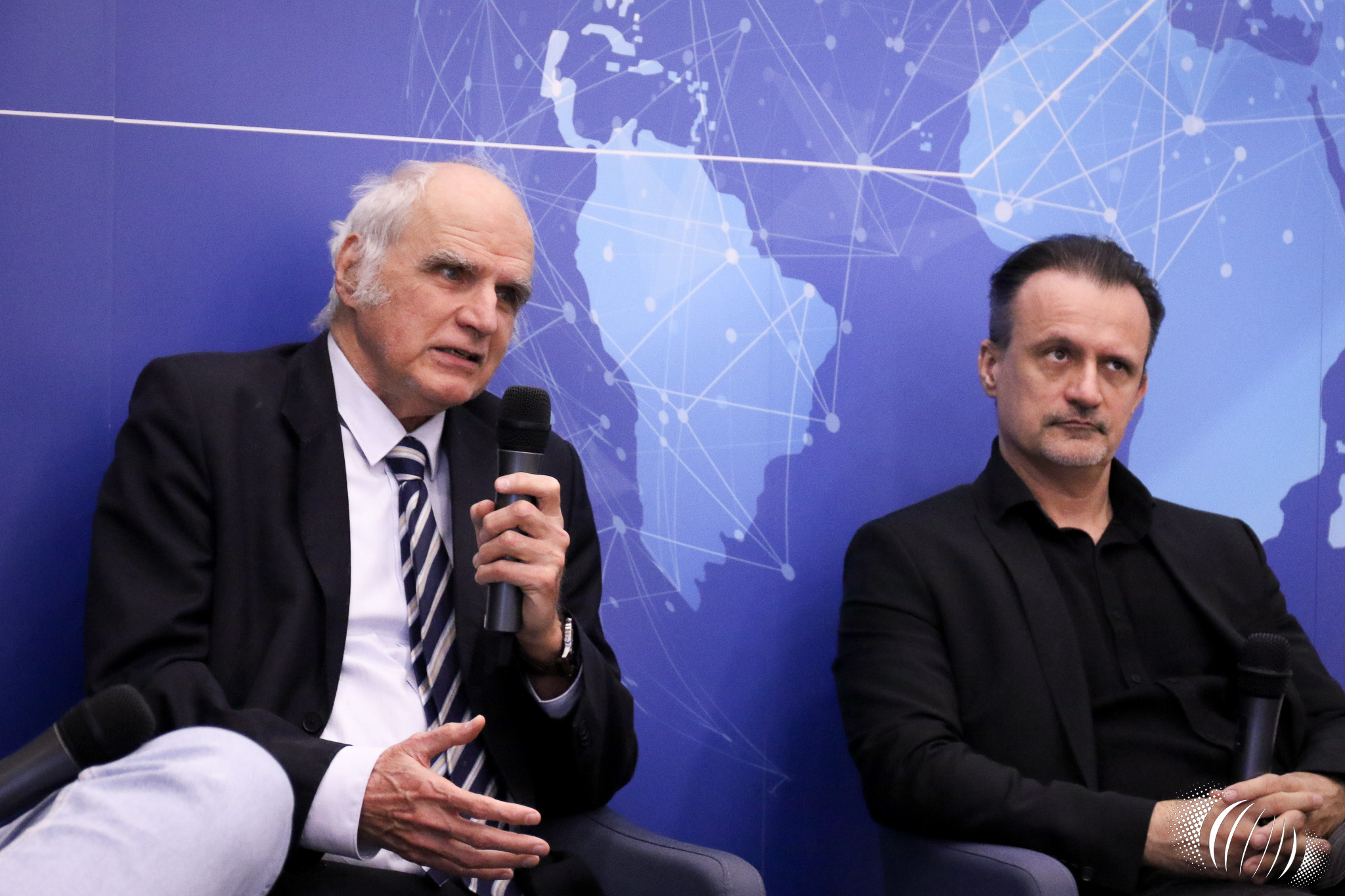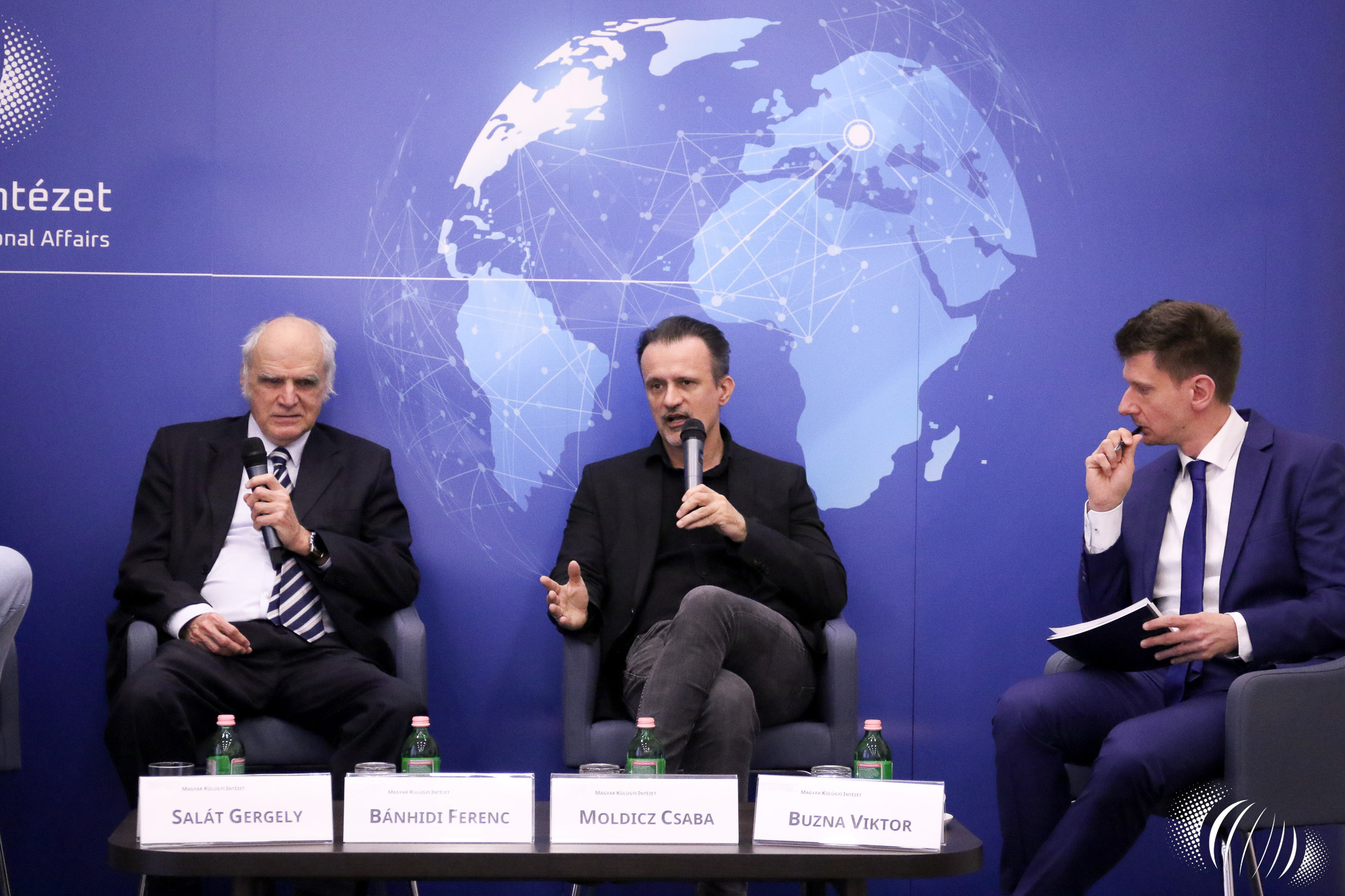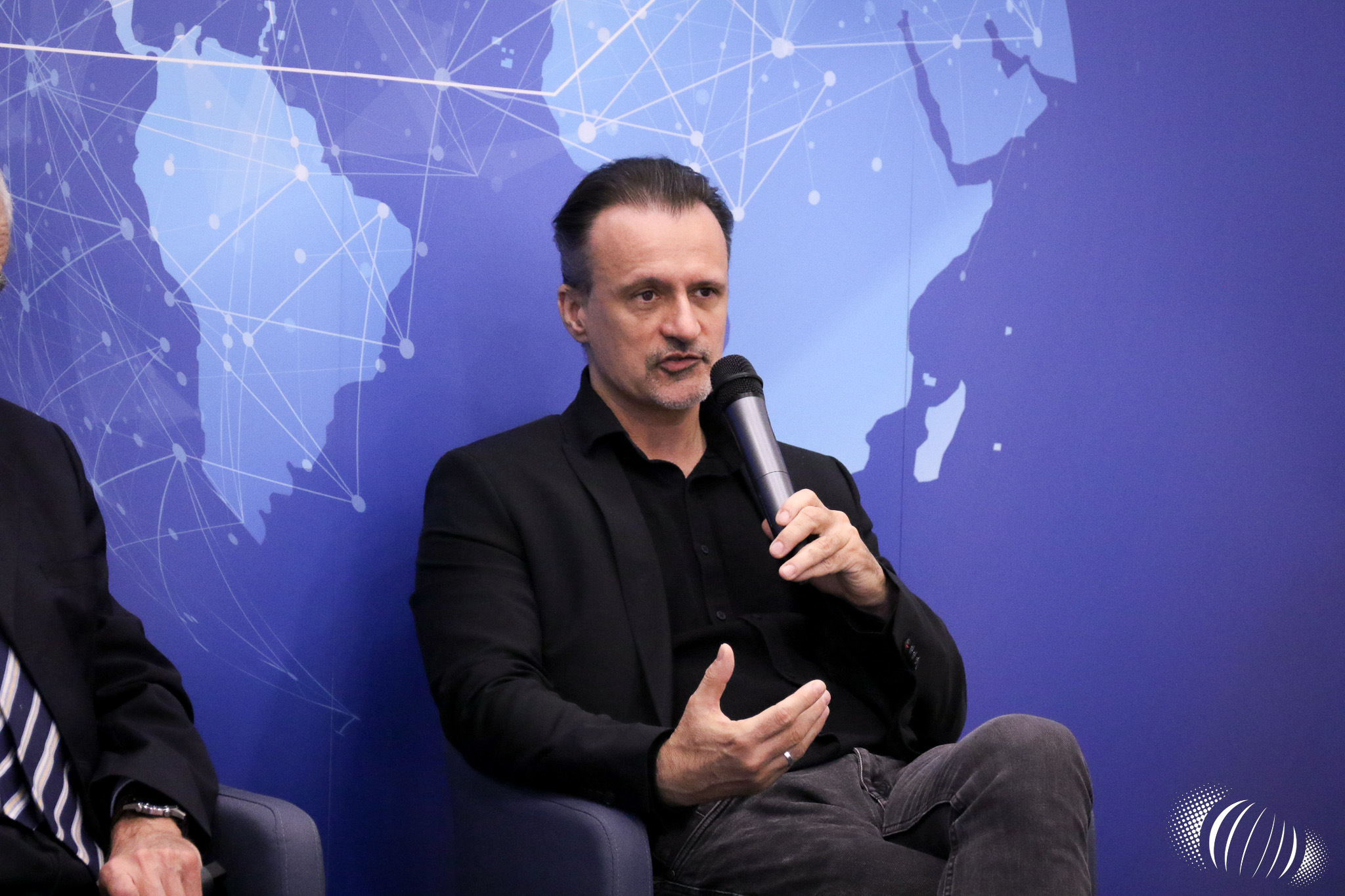On March 6, 2025 the Hungarian Institute of International Affairs held a roundtable discussion entitled “The First Shots Have Been Fired: Outlook of the US-China Trade War”. Moderated by HIIA Research Fellow Viktor Buzna, the event featured a conversation between Ferenc Bánhidi from the Modern East Asia Research Group at Pázmány Péter Catholic University, Csaba Moldicz, head of the MCC Foreign Trade Workshop, and Gergely Salát, Senior Research Fellow of HIIA, on the new phase now beginning in the US–China trade war.
The discussion highlighted that while the Chinese economy is facing serious challenges, it still has sources of potential growth. In early February, Donald Trump raised the punitive tariffs originally imposed during his first administration on Chinese goods by 10%, followed by another 10% increase in March. The Chinese side responded with similar measures but remained relatively restrained—suggesting that China wishes to avoid an escalation of the trade war. However, if it has no other choice, it is prepared to engage in the conflict.
The U.S. measures are unlikely to significantly weaken the Chinese economy: China anticipated Trump’s return and diversified its trade relations, making it far less dependent on U.S. exports than before. It remains to be seen how American voters will react to the price increases resulting from the tariffs—their response could temper the White House’s aggressiveness and potentially pave the way for a broader U.S.–China agreement.
Nevertheless, based on recent steps and statements, it seems likely that tensions between the two global powers will continue to rise, which does not bode well for the global economy. Analysts were divided on whether the deterioration of U.S.–China and U.S.–Europe relations could lead to an improvement in EU–China ties. While there is potential for the EU to recalibrate its relationship with China, it remains uncertain whether the political will exists. All participants agreed that EU–China relations should be significantly less ideologically driven.

